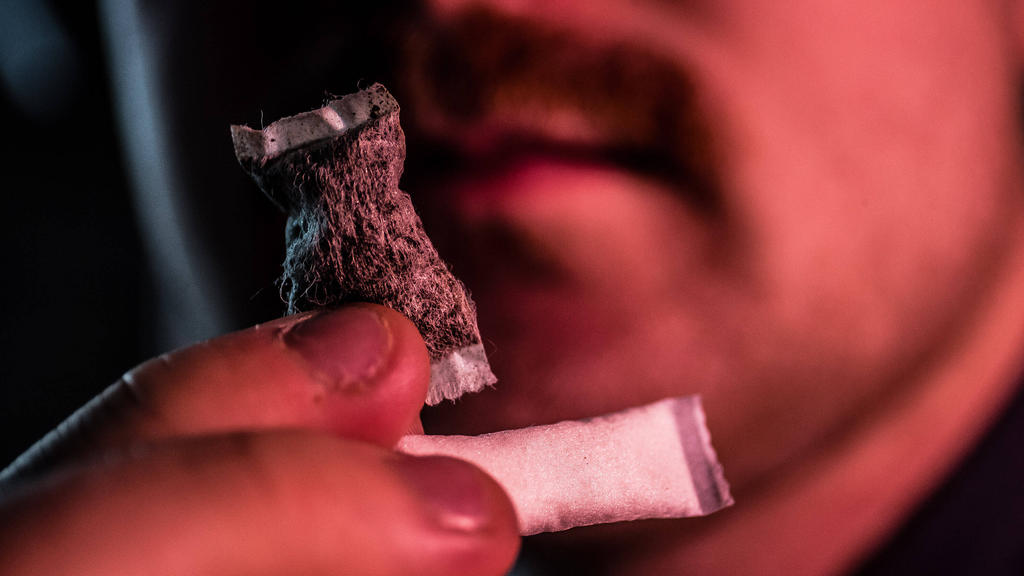Sportsmen and women have been consuming chewing tobacco for a long time, and football players are no exception. Chewing tobacco is not considered an illegal drug in professional sports, so athletes can safely use it before competition. We will explain why it is so popular in sports and what effect this product has on the body and performance of soccer players.
Why is chewing tobacco so popular in football?
Chewing tobacco is most popular among hockey players who use tobacco pouches to increase performance and improve concentration before important games. The popularity has now spread to other sports, and more and more footballers are reaching for the small nicotine sachets. Even in handball, there are several reports of players who have used chewing tobacco and are still consuming it.
Chewing gum comes from Scandinavia and is even more popular there than cigarettes. It is a type of chewing tobacco that consists of water, aromas, salt and ground tobacco leaves. The nicotine content of the products varies by brand, with some containing more than 20 mg/g of nicotine.
One of the reasons why athletes choose tobacco pouches is the effect on the body and mind. When the body absorbs nicotine, it starts to produce more adrenaline and the speed of reactions increases. Although the body is stimulated, chewing tobacco has a calming effect on the mind. This is because more dopamine is released, which increases positive feelings and suppresses nervousness.
Effects on the body include:
The reaction time is improved
Higher attention
The level of adrenaline rises
Metabolism is accelerated
Nervousness decreases
Muscles can be built faster
Chewing tobacco is not considered a doping agent
The commercial sale of chewing tobacco is considered illegal in many European countries, although the health effects of chewing tobacco are considered to be much less severe than those of cigarettes. However, consumption remains completely legal and therefore this product can also be used in football. About the question "Is chewing tobacco a drug?" are still hotly debated among experts and opinions differ.
The World Anti-Doping Agency has not yet classified chewing tobacco as a doping substance, but since it is considered a stimulant, it is on the watch list. Only substances that provide a clear advantage in competitions are considered doping substances. Many experts agree that chewing tobacco causes performance enhancement, but this is still too small to place the product on the banned substance list.
Are users of chewing tobacco known even in the highest leagues?
Of course, even in the highest leagues there are professional football players who use chewing tobacco as a stimulant. Probably the most famous example is Marco Reus, who even published a photo with a can of Thuinder on social networks. Karim Benzema was also spotted taking one of the bags on the bench, which made headlines.
Jamie Vardy revealed in his biography that he regularly consumes nicotine sachets before matches. In addition, this type of tobacco is very popular, especially among Scandinavian players.
Since chewing tobacco is only tucked under the upper lip during use, consumption is relatively difficult to observe. In addition, there is no combustion as with other tobacco products, so no smoke is visible. The product is usually filled in portions into cans or can be bought loose.
Conclusion
Chewing tobacco in football is no longer a rarity, and many players openly admit that they use tobacco pouches before important competitions. Unequivocal performance enhancement has not yet been demonstrated, but the products are on the watch list of the World Anti-Doping Agency. Athletes report that when using the products, there is an increase in adrenaline, as well as a decrease in nervousness. In the future, it will be seen whether chewing tobacco will be added to the list of prohibited substances, or whether its consumption during sports will continue to be monitored. An important reason for the widespread consumption of chewing tobacco in sports is certainly that the consumption of chewing tobacco does not affect the lungs, as is the case with cigarettes.

